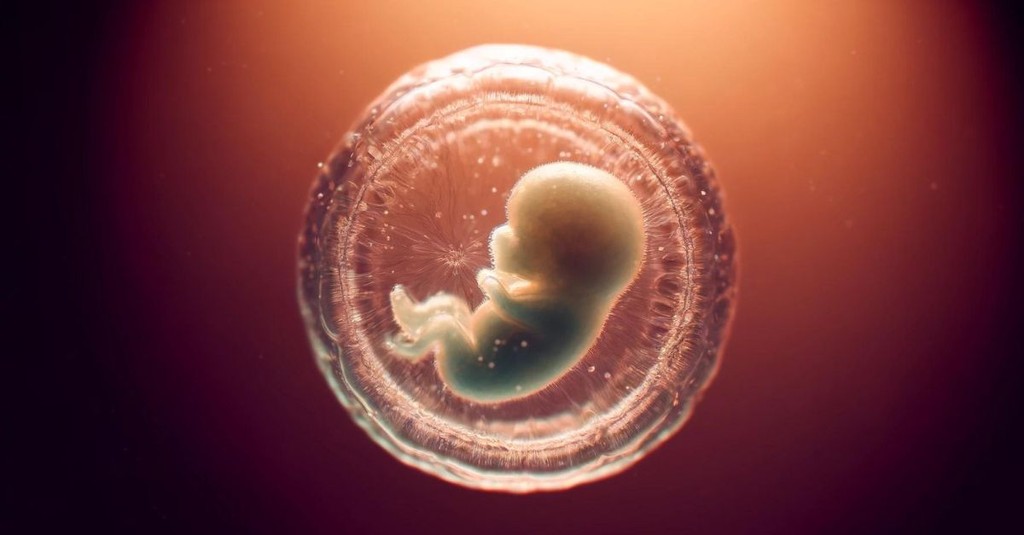
Abortion is the most controversial ethical issue of our time. It touches on social, political, philosophical, and religious questions, including the relationship between sex and procreation, feminism, the relationship between church and state, contraception, euthanasia, biotechnology and bioethics, the meaning of life, and the meaning of personhood. Let's take a look at abortion from the Bible to the present.
Photo Credit: Image created using DALL.E 2024 AI technology and subsequently edited and reviewed by our editorial team.
1. Is Abortion Mentioned in the Bible?
Although the Old Testament does not specifically mention abortion, Judaism historically has generally been opposed to it except to save the life of the mother. More liberal forms of Judaism allow abortion for a variety of reasons.
The New Testament also does not specifically mention abortion, though this should not be construed as approval or permissiveness. The early church absolutely prohibited abortion and compared it to infanticide. Later, Origen followed Aristotle in distinguishing between the unformed and the formed unborn child, arguing that aborting the unformed was immoral but not murder. This view was widely accepted in the medieval church. The Roman Catholic church accepted the medieval view until the late nineteenth century when increased knowledge about fertilization gradually led to its abandonment in favor of recognizing the unborn as human persons from the moment of conception. Protestant thinking on abortion quickly reverted to the pre-medieval view that all abortions destroyed human lives and were, therefore, always tantamount to murder except when performed to save the mother’s life.
2. What Is the History between Abortion and the Church?
Since abortion was rare, it was not often discussed in the church until the nineteenth century when abortion became more common. The swelling abortion rate led Americans to enact state laws against abortion, reflecting the prevailing cultural abhorrence of abortion and the belief that the unborn were human persons. During the first half of the twentieth century, the abortion rate declined significantly, partly because contraceptive technologies became more efficient, more available, and generally more acceptable.
Despite contraception becoming increasingly common, after World War II abortion rates began rising again, in part because medical technologies made abortion much safer for women. The main reason for the increase in abortions, however, was a dramatic rise in premarital sex among teenagers and young women.
Abortion advocates used so-called “hard cases” to get anti-abortion laws overturned. This culminated in Roe v. Wade (1973), in which the Supreme Court ruled that a Texas law anti-abortion law was unconstitutional. In the wake of the Roe decision, all laws against abortion were held to be unconstitutional until the 2022 Dobbs decision that sent the issue back to the states. Since then, some states have introduced varying levels of restrictions on abortion while others have removed all restrictions on abortion up to the moment of birth.
Recent abortion debates have made it clear that the main issue is consequence-free sex, not saving women’s lives or their health or defending women from rape. Pro-choice opposition to laws mandating medical care to babies born alive after botched abortions demonstrates this conclusively.
Although not all pro-lifers regard the entire Bible as the infallible word of God (since there are Orthodox Jews and Muslims who are pro-life), within Christianity nearly all pro-lifers accept the orthodox view of the Bible as God’s word, while most pro-choice Christians hold to a more liberal view of the Bible. While some pro-choice Catholics and evangelicals hold a high view of Scripture, they are a small minority. Thus, biblical values (some of which are shared by Muslims, Orthodox Jews, and Mormons) inform the pro-life position, while the pro-choice view is in some respects out of keeping with biblical ethics.

3. What Are the Biblical Ethics of Human Life?
The Life of the Unborn
The pro-life argument is actually very simple. Patrick Lee summarizes it in three points:
- Intentionally killing an innocent person always is morally wrong.
- Abortion is the intentional killing of an innocent person.
- Therefore, abortion is always morally wrong.
The only way to attack the argument is to deny one of the premises.
Abortion and the Sixth Commandment
The basic reason for the pro-life view is the Sixth Commandment, “You shall not murder” (Ex. 20:13; Deut. 5:17; Matt. 19:18; Rom. 13:9). In biblical teaching, murder is prohibited because what is killed was created in the image of God. The classic text on this is Genesis 9:6. This verse affirms that all human beings are made in God’s image, that murder does not include animals (contrary to some abortion and animal rights activists), and that it specifically refers to innocent life since murderers are subject to the death penalty.
Whether or not it is morally right to kill murderers, in biblical ethics it is always morally wrong to kill those who are doing no harm to others. The pro-life position follows directly from this premise. It asserts that it is always morally wrong to kill the unborn except where they pose a danger to the mother’s life.
This brings us to the second premise: Do the unborn qualify as persons? Or is this even the right question?
Photo Credit: ©Getty Images/Violeta Stoimenova
4. How Do We Define Personhood?
The abortion debate is commonly framed around the personhood of the unborn. Pro-lifers routinely argue that the unborn are persons, while pro-choicers argue that abortion is permissible because the unborn are not persons. Patrick Lee uses the term “person” as the key term in the two premises of his argument against abortion, quoted earlier.
The trouble with making personhood the decisive issue in the abortion debate is that our culture no longer has a consensus view of what personhood is. Some people define personhood in terms of the developed characteristics of self-awareness, individuality, rational thought, the capacity for moral choice, and so forth. Defining personhood in this way virtually guarantees that the unborn will not be considered persons, but arguably six-month-old infants will not qualify as persons either.
Others define personhood as the possession of an individual soul or spirit distinct from the body. The trouble with this way of defining personhood is that there is no unanimity in our society as to whether such things as souls exist, let alone when they become part of the human being.
Given that there is no clear definition of the term “person,” it is best to leave it aside and focus instead on the simpler and more direct argument that the unborn should not be killed because they are human beings. After all, the Bible does not use the word “person” in Genesis 1:26-27 or 9:6 but speaks instead of human beings, ’ Adam, as created in God’s image possessing life that is not be violated. Nowhere in the Bible or in the legal traditions of our civilization is there any suggestion that only some classes of human beings are deserving of life. Thus, all that is necessary to defend the claim that the unborn deserve to have their rights protected by law is to show that they are human beings.

5. Humanity Encompases the Unborn
This, it turns out, is exceedingly easy to defend — which is why many pro-choice advocates keep the discussion on the more debatable concept of personhood. Conception (or, perhaps more narrowly, fertilization) is the first event in the history of the human organism — indeed, the event that constitutes it as a distinct human being. Prior to conception, what exists is an egg, which is genetically and functionally part of the mother’s body, and a sperm, which is organically, genetically, and functionally part of the father’s body. When fertilization is complete, a new organism is conceived, which is genetically distinct from the mother and father and is functionally developing as a distinct organism. Specifically, from the moment of conception what exists is a human organism, a human being, with potential for development, growth, and full realization.
The point here is not merely that the unborn are human. As pro-choice advocates never tire of pointing out, our fingernails are human, but we think nothing of cutting them off and throwing them in the trash. The unborn, from the moment of conception, is not merely human, but a whole human being, distinct from the mother, needing only time and nourishment to develop into a fully functioning adult human person. This is a non-controversial fact of biology that no one seriously denies and which even many people on the pro-choice side freely admit.
Photo Credit: Image created using DALL.E 2024 AI technology and subsequently edited and reviewed by our editorial team.
6. Is Abortion Prohibited by God?
Given that the unborn are human beings from the moment of conception, it follows directly that killing them for any reason other than to save the mother’s life is forbidden by the sixth commandment. And killing is exactly what it is, no matter how much pro-choice try to hide the truth from the public, and perhaps from themselves, by speaking vaguely of “a woman’s right to choose” — without specifying what she is choosing — or euphemistically of a woman’s “reproductive rights” — without acknowledging that once a woman has conceived reproduction has already taken place.
It is unnecessary, and in some respects possibly misleading, to base the pro-life position on the facts concerning fetal development, such as at what stage the unborn can feel pain or at what stage the unborn has a heartbeat. Emphasizing the development of various capacities invites the question of whether the unborn deserves legal protection before those benchmarks of human development. If the unborn are human beings from the moment of conception, then what functions emerge at various stages of gestation after conception is irrelevant to the humanity of the unborn.

7. How Can We Defend the Lives of the Unborn?
Many defenders of the pro-choice position base it on a kind of agnosticism about the moral status of the unborn, arguing that since people disagree on this question the law cannot “impose” the pro-life view of the unborn on the rest of society. Yet if we are unsure whether the unborn are fully human beings, then it is surely wrong to permit people to kill them. Peter Kreeft, a Roman Catholic philosopher, sets forth a “quadrilemma” on the question of whether the fetus is a person:
- It is not a person, and we know that.
- It is a person, and we know that.
- It is a person, and we do not know that.
- It is not a person, and we do not know that.
In case (1), Kreeft argues, “abortion is perfectly permissible,” but we cannot know with certainty that the fetus is not a person. In case (2), “abortion is murder,” because it is knowingly killing a person. In case (3), “abortion is manslaughter,” because it is an act of careless and irresponsible killing. In case (4), even though the fetus is not a person, abortion is “criminal negligence,” because one ought to ascertain whether the fetus is a person before killing it.
Kreeft’s analysis is helpful not only because it is an effective response to the agnostic pro-choice argument but also because it introduces important distinctions regarding the seriousness of abortion in criminal law. The sixth commandment says “You shall not murder,” a general statement that does not distinguish between “first-degree” murder, manslaughter, and criminal negligence. These distinctions, however, are biblical, since the Law of Moses clearly distinguished between cases of killing that were punishable by death, exile, and restitution (e.g., Ex. 21:12-14, 20-21, 28-29). Thus, it is not necessary for women who procure abortions to be judged as committing murder in the first degree for the pro-life position to be reflected in law. Pro-lifers are not asking for the death penalty for women who have abortions, or even for abortionists. They are asking for reasonable punishments that reflect an understanding of the legal and social difficulties of prosecuting abortion cases (e.g., suspension of physicians’ licenses or possibly prison time for repeated illegal abortions, community service, or other penalties for women who obtain abortions).
Although the argument presented here has used Scripture, the major premise that killing innocent human beings is wrong and should be prohibited by law is defensible even apart from the Bible. The abortion issue shows that Christian values are based on the revelation of God’s will in Scripture but that these values can be defended by appealing to facts and moral principles that people of most religions, or even of no religion, can understand and accept.
RELATED PODCAST:
Bill Maher and Piers Morgan had a controverisal and shocking conversation that even left the Democrats and pro-choicers speechless.
Photo Credit: Photo Credit: Image created using DALL.E 2024 AI technology and subsequently edited and reviewed by our editorial team.

Kenneth Boa equips people to love well (being), learn well (knowing), and live well (doing). He is a writer, teacher, speaker, and mentor and is the President of Reflections Ministries, The Museum of Created Beauty, and Trinity House Publishers.
Publications by Dr. Boa include Conformed to His Image, Handbook to Prayer, Handbook to Leadership, Faith Has Its Reasons, Rewriting Your Broken Story, Life in the Presence of God, Leverage, and Recalibrate Your Life.
Dr. Boa holds a B.S. from Case Institute of Technology, a Th.M. from Dallas Theological Seminary, a Ph.D. from New York University, and a D.Phil. from the University of Oxford in England.
Originally published Friday, 17 May 2024.
